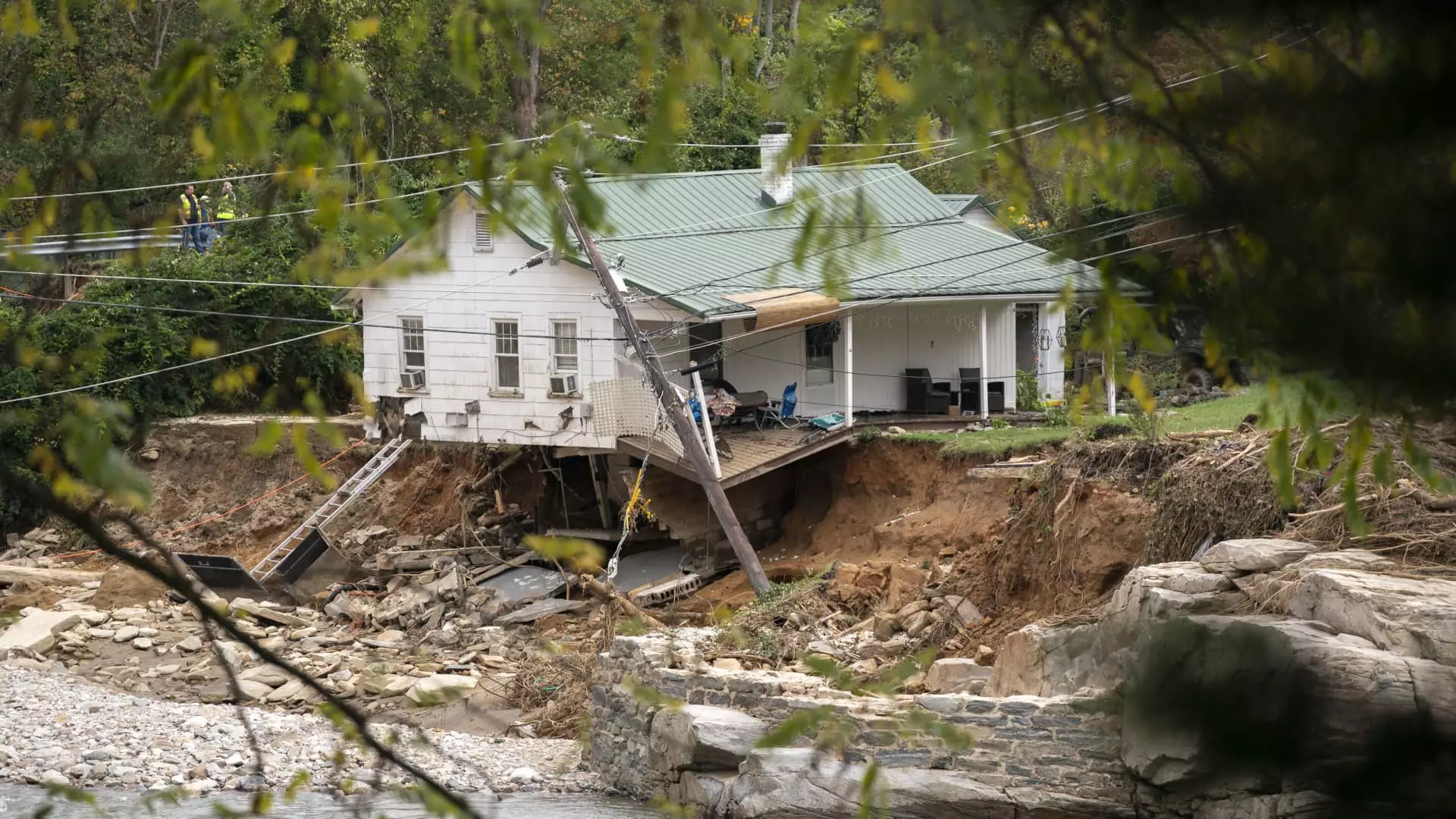Recent estimates place the insured losses from Hurricane Helene at an overwhelming $6 billion, with uncovered losses expected to be even more substantial. This predicament has become especially pronounced in states like North Carolina, where many affected homeowners lacked flood insurance. Such gaps in coverage primarily stem from FEMA’s flood zone designations, which classify only about 4% of North Carolina homes as being located in flood-prone areas. Unfortunately, this leaves many homeowners unaware that they are at risk, which is exacerbated by the realities of climate change.
Rethinking Flood Insurance Necessity
The disparity between FEMA’s flood zone criteria and actual risk has sparked a reaction from climate risk assessment firms such as First Street. By adopting advanced technology that incorporates ongoing changes in climate patterns, First Street seeks to provide more accurate property risk scores, revealing that nearly 12% of homes in North Carolina are at risk of flooding, despite the narrow representation by FEMA’s maps. This discrepancy highlights a critical gap in public perception of flood risk, as many homeowners mistakenly believe they are secure if they fall outside FEMA’s designated zones.
Informed Decisions with Enhanced Data
To address this issue, First Street has teamed up with Zillow to introduce a pioneering suite of climate risk data for properties listed on the real estate platform. This updated information is designed to empower both buyers and sellers with specific, property-level insights into climate-related risks. As more individuals recognize the importance of flood risk when searching for homes, understanding these risks becomes a fundamental part of the purchasing process. According to Skylar Olsen, chief economist at Zillow, this evolving landscape mandates that both agents and consumers adapt their approach in navigating the complexities of climate risks.
With new listings now showing risk scores that forecast potential dangers associated with floods, fires, and other climate-related concerns over the next 15 to 30 years, the real estate market is undergoing a transformative shift. These assessments not only outline current risk profiles but also anticipate future changes owing to climate impact. This long-term outlook enables potential buyers to make informed comparisons, ensuring they understand both immediate and ongoing liabilities associated with property ownership.
The increased awareness surrounding climate risk is palpable among home buyers. Recent surveys indicate that over 80% consider climate factors when making purchasing decisions, with flood risk consistently identified as their top concern. As climate-related risks continue to escalate, a Zillow analysis has shown that the proportion of listings featuring significant climate-related hazards has risen markedly in the past five years across all categories. These findings illuminate a clear trend—a more substantial emphasis on climate considerations is now shaping buyers’ choices.
Market Forces and Real Estate Values
The implications of these evolving perceptions on home values are significant. In an increasingly climate-conscious marketplace, properties deemed high-risk for natural disasters could see a dip in demand and value. Buyers will likely look for properties offering not only lower climate risk but also lower associated insurance costs. As premiums for insurance in vulnerable areas rise, the financial burden could further depress real estate values in at-risk locales.
The Path Forward
In light of these developments, it is essential for homeowners and prospective buyers to remain vigilant regarding the realities of climate risk. The integration of comprehensive climate assessments into real estate transactions is a tangible step toward better decision-making. Through this lens, both individuals and communities can adapt to mitigate risks, safeguarding not just their investments but also promoting long-term resilience in the face of unavoidable climate challenges. Overall, the intersection of technology and real estate is paving the way for a more informed and proactive era in homeownership, changing how we perceive safety and insurance in the context of climate change.

